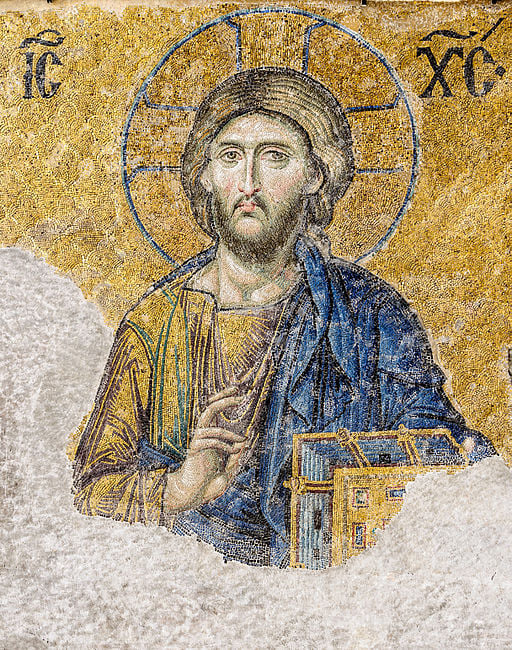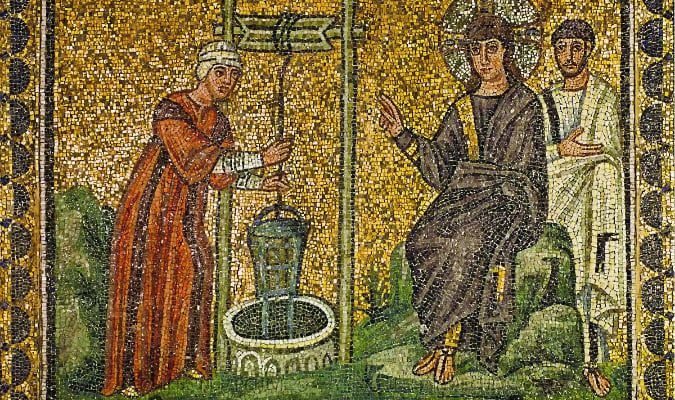Click below to listen along…..
Every single year when I was growing up, sometime in late Fall, our family, like so many other families in America, would receive an enormous catalog from a department store. On the cover would be some kind of shiny image of perfect children unwrapping gifts under a Christmas tree and inside were hundreds of glossy pages of clothes and appliances and tools and home goods and finally – toys. As kids we would devote ourselves to the study of this book, pouring over and discussing the relative merits of every single page like it was communal Midrash. We would use a black magic marker to circle the items we most wanted Santa to bring us so our moms would know what in this holy book would make us the most happy. The catalog was called the Sears Wishbook. And for many of us – the Sears Wishbook and the empty promises it held, was our first experience with the trap of desire. Because either we suffered because we never received the Malibu Barbie we desired or if we did we suffered when realized Malibu Barbie didn’t bring us the joy or fulfillment we imagined it would, Which is to say, it was our first experience of the desire – then fulfillment – then disappointment – then desire cycle we still find ourselves trapped in today.
This week I started wondering if this isn’t similar to the cycle described in the Gospels – especially the 6th chapter of John we’ve been seemingly trapped in for the last 5 weeks – If you remember – It started with Jesus feeding the 5,000 – the crowd’s desire for bread was granted and then inevitably seen for what it was – only a temporary fix. This is followed by a long weird discourse about Jesus being the bread of life which leads us to our reading for today when a bunch of his followers say “um, your teachings are hard.” and they take off and Jesus looks at the ones who are left and asks if they want to take off too and they respond, “Lord to whom shall we go, you have the words of eternal life”.
It was like the disciples kept circling things in the Sears Wishbook and showing them to Jesus sure that getting what they wish for would be the key to a good life and the avoidance of suffering. They wanted miracles and signs and a list of rules to follow so that they may earn eternal life and they wanted to make Jesus a real king and not just that weird guy who says weird stuff while surrounded with weird people. And instead, over and over – Jesus gives them himself. He keeps saying I give myself to you and they keep pointing to what they circled in the Sears Wishbook.
So some of the disciples say “this teaching is hard” and they leave. I get that. His teachings are hard. Mainly because my own desires – the things I circle in my Wishbook are pretty much always rooted in ego and Jesus’ teachings do nothing for the ego except destroy it. You know which ones I’m talking about: teachings like, those who seek to save their life must lose it and those who lose their life will find it – teachings like the first shall be last and the last shall be first. And “don’t be afraid” and that classic, “don’t worry about tomorrow” It makes me want to tell Jesus to stop talking and just smite my enemies and hand over Malibu Barbie already.
Because Jesus’ words are seldom the words we want to hear. They just happen to be the words we need to hear. Just to be clear, though: Jesus’ teachings are hard not because they demand a certain moral or ethic from us – a lifestyle that isn’t as fun as one we’d rather choose – the teachings are hard because they offer a saving truth that our desires can never offer us. For instance, were there a picture in the Sears Wishbook of my enemies being destroyed…my ego would totally grab a black magic marker and circle that and say yes, Jesus slash Santa if you could please make sure horrible things happen to my internet trolls and the people who have hurt me and my 8th grade bully Debbie Quackenbush I would feel better – and to this Jesus says these words: “Love your enemies and pray for those who persecute you” He says “turn the other cheek” he says “forgive them Father, they know not what they do.”
These words of Jesus make me realize why the great poet W.H. Auden, when asked once why he was a Christian, instead of a Buddhist or a Confucian, since all these religions share similar ethical values said, “Because nothing in the figure of Buddha or Confucius fills me with the overwhelming desire to scream, “crucify him.” Which makes me realize that my own Christian faith is always a blend of “This teaching is hard” and “Lord, to whom shall we go, you have the words of eternal life.” I don’t know about you – but I feel like a combination of both these kinds of disciples. Because I know that the message and work of Jesus is what heals me and yet, it smarts the ego like hell so instead – I sometimes walk away like a kid who refuses antiseptic for her badly skinned knee because she knows its gonna sting.
But Lord, seriously, to whom shall we go instead? Shall we go to graduate school- will another degree save us? What about Ashley Madison? What about our retirement account Lord, shall we go there? Will the Dow Jones keep us safe? Lord, shall we go to Netflix again? Lord, shall I go to the old standby of proving I’m right and someone else is wrong because that’s always felt like a promise I can trust. Even though its never worked. Shall we go to carbohydrates or *bagging another 14er? Lord, to whom shall we go? We go where the people of God have always gone: to the gifts of the Gospel – which are all the things that bring us life but that the ego hates: Grace. Mercy. Forgiveness.
Because Jesus isn’t our personal Sears Wishbook. There is no promise offered here that your desires will be met. But watch out, because your desires might just be changed. And that is the greater promise even when it doesn’t feel like it. Because it’s like the Gospel doesn’t fulfill our desires, it re-orients them. If this thing was about wish fulfillment and meeting all our needs, then the story of Jesus would never have included a sketchy conception and a working class upbringing and then trouncing around with prostitutes and lepers and healing the sick and casting out demons and being betrayed and beaten and crucified and rising from the dead with a still wounded body. If this thing was about wish fulfillment, it would have looked very different – something like: Jesus is born to a royal family in the Swiss Alps and becomes a CEO who draws to himself the elite and powerful. The ones who already have all the answers, the ones for whom life is easy. And then he destroys all their enemies and lives forever ruling his kingdom with an iron fist – and everyone who believes he is the messiah is showered with cash and prizes and an easy life. It’s like Fantasy Island forever. We all get to eat nothing but Frosted Flakes for every meal and Malibu Barbie delivers on every promise. And there would be no wisdom. And no compassion. No charity. No deep connection to other human beings. No tears. No solidarity. Nothing that really saves us. Because we need wisdom and compassion and charity and a deep connection to each other and forgiveness and tears and solidarity. We need all the things our egos will never clamor for.
So it’s a good thing that while we may come to Jesus saying give us what we circled in our wishbook, that instead – Jesus gives us of himself. Because Jesus’ life of touching the unclean and eating with all the wrong people and speaking truth to power and always turning our pride upside down…his life of joy and fellowship and frustration and wisdom and always sticking with his disciples no matter how idiotic they are THIS life is given to us too. He gives us the words of life to free us from the bonds of death – to free us from the captivity of self-interest and self-hatred. To free us from the bondage of navel gazing. To set us free from the things we think we can’t live without. This is the true bread of eternal life. And it is for all of you – so come once again to this table where Christ is the host – offering himself in a feast of wisdom and compassion and charity and a deep connection to each other and forgiveness and tears and solidarity.
*Colorado slang for climbing peaks over 14,000 feet












